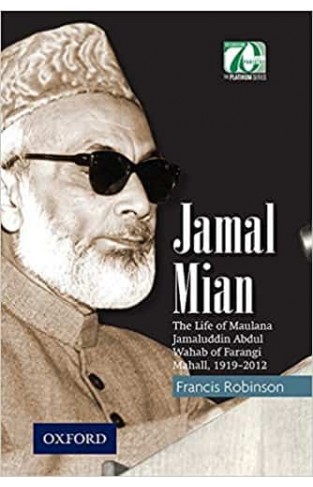Jamal Mian: The Life of Maulana Jamaluddin Abdul Wahab of Farangi Mahall, 1919-2012
Jamal Mian: The Life of Maulana Jamaluddin Abdul Wahab of Farangi Mahall, 1919-2012
By:
-
Rs 937.50
- Rs 1,250.00
- Ex Tax :Rs 937.50
- Price in loyalty points :1188
You saved Rs 312.50.
Due to constant currency fluctuation, prices are subject to change with or without notice.
This book relates the life of Jamal Mian Farangi Mahalli, a highly respected scion of Lucknow's scholarly culture and a major leader of the Pakistan Movement. Based on the archives left by Jamal Mian, in particular his personal diaries, it explores his life as a member of Farangi Mahall, South Asia's leading family of Islamic learning from Lucknow. The author covers the colourful life of a dynamic personality-from his education in the Dars-I Nizami and the spiritual traditions of his family to his rise to the Muslim League High Command, and his involvement in the campaign for Pakistan.
Independence and Partition wrecked Jamal Mian's family's fortunes. An Indian citizen, he had to find work in East Pakistan to support his family. Eventually, the Government of India forced him to choose between Indian and Pakistani citizenship. During the 1950s and 1960s, while based in Dhaka, he was close to both Iskander Mirza and Ayub Khan. After losing almost everything in the Bangladesh crisis, he resettled in Karachi, and did different jobs. He was also involved in international Islamic organizations.
Through the book, one is able to gain insight into his relationships with Jinnah, Jawaharlal Nehru, and Mirza Ahmed Ispahani; his close friendships with Hasrat Mohani, the Raja of Mahmudabad, Sadri Ispahani, and Mufti Amin al-Husseini; his consistent opposition to the Islamization of Pakistani politics; the extent to which his life was infused by poetry and spiritual devotion; and the length of time it took for the meaning of Partition in his life to be realized in full.












